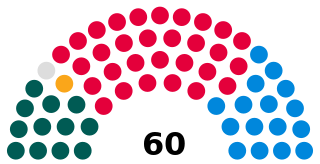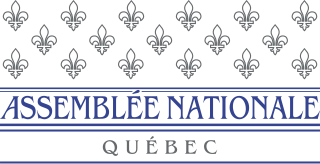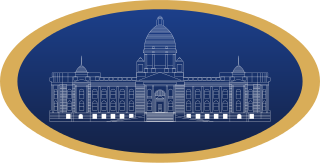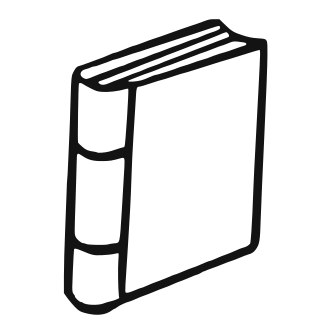Related Research Articles

The president of France, officially the president of the French Republic, is the executive head of state of France, and the commander-in-chief of the French Armed Forces. As the presidency is the supreme magistracy of the country, the position is the highest office in France. The powers, functions and duties of prior presidential offices, in addition to their relation with the prime minister and Government of France, have over time differed with the various constitutional documents since the Second Republic.

The Senedd, officially known as the Welsh Parliament in English and Senedd Cymru in Welsh, is the devolved, unicameral legislature of Wales. A democratically elected body, it makes laws for Wales, agrees certain taxes and scrutinises the Welsh Government. It is a bilingual institution, with both Welsh and English being the official languages of its business. From its creation in May 1999 until May 2020, the Senedd was known as the National Assembly for Wales.

Haradanahalli Doddegowda Deve Gowda is an Indian politician from the state of Karnataka. He served as the 11th prime minister of India from 1 June 1996 to 21 April 1997. He was previously the 14th Chief Minister of Karnataka from 1994 to 1996. He presently is a Member of Parliament in the Rajya Sabha representing Karnataka. He is the National President of the Janata Dal (Secular) party.

The National Assembly of Quebec is the legislative body of the province of Quebec in Canada. Legislators are called MNAs. The King in Right of Quebec, represented by the Lieutenant Governor of Quebec and the National Assembly compose the Legislature of Quebec, which operates in a fashion similar to those of other Westminster-style parliamentary systems. The assembly has 125 members elected first past the post from single-member districts.

The Samajwadi Party is a socialist political party in India, headquartered in New Delhi but mainly based in Uttar Pradesh, with significant presence in other states as well. With a secular and democratic ideology, the Samajwadi Party believes in creating a socialist society, which works on the principle of equality. The party has been able to form the government in the state of Uttar Pradesh for four times - three times under Chief Minister Mulayam Singh Yadav, the fourth and recent being Chief Minister Akhilesh Yadav’s full majority government in 2012-2017 Uttar Pradesh Legislative Assembly. The coalition of party and it’s alliance partners SP+ has one of the largest vote base in the state of Uttar Pradesh in terms of collective voting pattern in the state-based electoral system, with more than 37% vote share in 2022 elections.

The prime minister of Vietnam, officially styled as the Prime Minister of the Government of the Socialist Republic, is the head of government of Vietnam who presides over the meetings of the Central Government. The prime minister directs the work of government members, and may propose deputy prime ministers to the National Assembly.
A Member of Provincial Parliament (MPP) is an elected member of the Legislative Assembly of the Canadian province of Ontario. Elsewhere in Canada, the titular designation "Member of Provincial Parliament" has also been used to refer to members of the Legislative Assembly of Lower Canada from 1791 to 1838, and to members of the Legislative Assembly of Quebec from 1955 to 1968.

The president of the Socialist Republic of Vietnam is the head of state of Vietnam, elected by the Vietnam National Assembly from delegates of the National Assembly. Since Vietnam is a single-party state, the president is generally considered to hold the second highest position in the political system, formally after the General Secretary of the Communist Party of Vietnam. In addition, the president appoints the head of government, the Prime Minister. As head of state, the President represents Vietnam both domestically and internationally, and maintains the regular and coordinated operation and stability of the national government and safeguards the independence and territorial integrity of the country.

The National Assembly is the unicameral legislature of Serbia. The assembly is composed of 250 deputies who are proportionally elected to four-year terms by secret ballot. The assembly elects a president (speaker) who presides over the sessions.

The National Assembly is the lower legislative house of the bicameral Parliament of Pakistan, which also comprises the Senate of Pakistan. The National Assembly and the Senate both convene at Parliament House in Islamabad, the capital of Pakistan. The National Assembly is a democratically elected body consisting of a total of 342 members who are referred to as Members of the National Assembly (MNAs), of which 272 are directly elected members and 70 reserved seats for women and religious minorities from all over the country. A political party or a coalition must secure 172 seats to obtain and preserve a majority.

The Grand National Assembly of Turkey, usually referred to simply as the TBMM or Parliament, is the unicameral Turkish legislature. It is the sole body given the legislative prerogatives by the Turkish Constitution. It was founded in Ankara on 23 April 1920 in the midst of the National Campaign. This constitution had founded its pre-government known as 1st Executive Ministers of Turkey in May 1920. The parliament was fundamental in the efforts of Mareşal Mustafa Kemal Atatürk, 1st President of the Republic of Turkey, and his colleagues to found a new state out of the remnants of the Ottoman Empire.

The Parliament of Pakistan is the federal and supreme legislative body of Pakistan. It is a bicameral federal legislature that consists of the Senate as the upper house and the National Assembly as the lower house. According to the Constitution of Pakistan, the President of Pakistan is also a component of the Parliament. The National Assembly is elected for a five-year term on the basis of adult franchise and one-man one-vote. The tenure of a Member of the National Assembly is for the duration of the house, or sooner, in case the Member dies or resigns. The tenure of the National Assembly also comes to an end if dissolved on the advice of the Prime Minister or by the president in his discretion under the Constitution.

During the French Revolution, the National Assembly, which existed from 17 June 1789 to 29 September 1791, was a revolutionary assembly of the Kingdom of France formed by the representatives of the Third Estate (commoners) of the Estates-General. Thereafter, it was known as the National Constituent Assembly, although the shorter form was favored.
The State Legislative Assembly, or Vidhan Sabha, or also Saasana Sabha, is a legislative body in the states and union territories of India. In the 28 states and 3 union territories with a unicameral state legislature, it is the sole legislative body and in 6 states it is the lower house of their bicameral state legislatures with the upper house being State Legislative Council. 5 union territories are governed directly by the Union Government of India and have no legislative body.

The prime minister of Cambodia is the head of government of Cambodia. The prime minister is also the chairman of the Cabinet and leads the executive branch of the Royal Government of Cambodia. The prime minister is a member of parliament, and is appointed by the monarch for a term of five years. Since 1945, 36 individuals have served as prime minister; 32 as official prime ministers, and 4 in acting capacities.Hun Sen, of the Cambodian People's Party, has been the incumbent prime minister since 1985. He served from 1985 to 1993 and was Second Prime Minister from 1993 to 1998 alongside Norodom Ranariddh (1993–1997) and Ung Huot (1997–1998). Elected as prime minister in his own right in 1998, he is the longest serving prime minister in Cambodian history.
State governments in India are the governments ruling over 28 states and 8 union territories of India and the head of the Council of Ministers in a state is the Chief Minister. Power is divided between the Union government and state governments. While the Union government handles defence, external affairs etc., the state government deals with internal security and other state issues. Income for the Union government is from customs duty, excise tax, income tax etc., while state government income comes from sales tax (VAT), stamp duty etc.; now these have been subsumed under the various components of the Goods and Services Tax

Gujarat Legislative Assembly or Gujarat Vidhan Sabha is the unicameral legislature of the Indian state of Gujarat, in the state capital Gandhinagar. Presently, 182 members of the Legislative Assembly are directly elected from single-member constituencies (seats). It has a term of 5 years unless it is dissolved sooner. 13 constituencies are reserved for scheduled castes and 27 constituencies for scheduled tribes. From its majority party group or by way of a grand coalition cabinet of its prominent members,the state's Executive namely the Government of Gujarat is formed.

The National People's Party is a national-level political party in India, though its influence is mostly concentrated in the state of Meghalaya. The party was founded by P. A. Sangma after his expulsion from the NCP in July 2012. It was accorded national party status on 7 June 2019. It is the first political party from Northeastern India to have attained this status.

The Aam Aadmi Party is a national political party in India. The AAP was founded in November 2012 by Arvind Kejriwal and his then-companions following the 2011 Indian anti-corruption movement, popularly known as Anna Andolan. The AAP is currently the ruling party of two governments: Delhi, the capital territory of India, and the state of Punjab. The party's election symbol is a broom.

Bhupendra Rajnikant Patel is an Indian politician and the current Chief Minister of Gujarat since September 2021. He is a member of the Bharatiya Janata Party (BJP). He started his political career in municipal bodies of Ahmedabad before being elected the member of Gujarat Legislative Assembly representing Ghatlodia constituency in 2017.